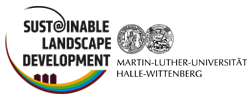
Aktuelle Projekte
TAPELINE
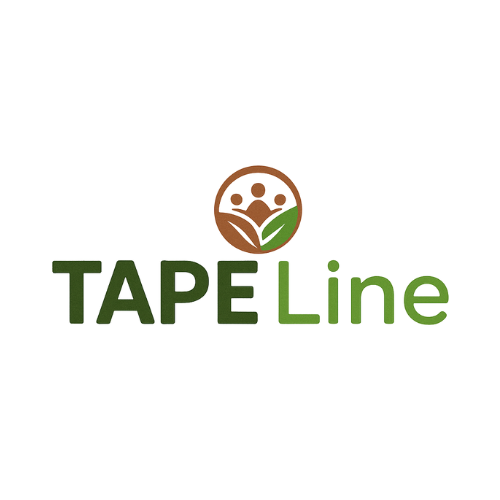
TAPELINE – Transitioning to Agroecology through participatory Learning, Implementation of TAPE tool, strategizing and Networking, and Enrolling.
Projektbeschreibung:
TAPELINE ist ein europäisches Projekt, das darauf abzielt, räumliche Agrar- und Ernährungssysteme durch partizipative, evaluierte agroökologische Praktiken zu transformieren.
Das zentrale Ziel von TAPELINE ist es, die Einführung nachhaltiger landwirtschaftlicher Praktiken, die auf den Prinzipien der Agrarökologie (AE) basieren, sowohl auf Ebene der landwirtschaftlichen Betriebe als auch auf Ebene der Landschaft zu beschleunigen. Zu diesem Zweck bringt
TAPELINE die Landwirtschaft, Forschung, die Zivilgesellschaft und die Politik zusammen, um gemeinsam die aktuellen Landwirtschaftssysteme mit Hilfe des TAPE-Tools (entwickelt von der FAO) zu bewerten, Strategien zu entwerfen und agrarökologische Maßnahmen zu erproben, die an ihre Region angepasst sind.
Die Rolle der lokalen Landwirte und Landwirtinnen ist besonders entscheidend für die Umsetzung des L-I-N-E-Pfades, einem partizipativen Fahrplan, der aus vier miteinander verbundenen Phasen besteht:
Lernen durch Einbindung der lokalen Stakeholder in AE-Schulungen und die Vertiefung des kollektiven Wissens durch transdisziplinären Dialog.
Implementierung durch Anpassung und Anwendung des TAPE-Tools, Evidenzanalyse durch Betriebsbefragungen und räumliche Bewertungen.
Vernetzung (Networking) und Strategieentwicklung durch Multi-Akteur-Plattformen (MAPs), auf denen die Interessengruppen gemeinsame
Strategien entwickeln, Maßnahmen priorisieren und Governance-Modelle entwerfen.
Einbindung politischer Akteure und externer Interessengruppen, um die Akzeptanz, Skalierbarkeit und Kontinuität der agrarökologischen-Umstellung sicherzustellen.
TAPELINE zielt darauf ab, lokale Landwirtinnen und Landwirte aktiv einzubeziehen und ihre Aktivitäten durch Living Labs und einen gemeinsamen Lernansatz im lokalen Kontext zu verankern. Die Living Labs dienen als partizipative Umgebungen, um agroökologische Prinzipien in realen räumlichen Kontexten zu testen und anzupassen.
Die Ergebnisse ermöglichen Empfehlungen für die Steuerung
und Förderung der Transformation, die allen Akteurinnen und Akteuren
zugutekommt.
(ENGLISCH)
TAPELINE is a European Project aimed at transforming territorial agri-food systems through participatory, data-driven agroecological practices. TAPELINE central objective is to accelerate the adoption, at both farm and landscape levels, of sustainable agricultural practices rooted in the principles of agroecology (AE). To do so, it brings together farmers, researchers, civil society actors, and policymakers to collectively evaluate current farming systems using the TAPE tool (developed by FAO), design transition strategies, and pilot agroecological interventions adapted to their region.
The role of local farmers is particularly crucial for the implementation of the L-I-N-E pathway, a participatory roadmap consisting of four interlinked phases:
Learning by engaging local actors in AE training sessions, deepening collective understanding through transdisciplinary dialogue.
Implementing by customizing and applying the TAPE tool, gathering evidence through farm surveys and territorial assessments.
Networking & Strategizing through Multi-Actor Platforms (MAPs), where stakeholders co-develop strategies, prioritize interventions, and design governance models.
Enrolling by bringing policy actors and external stakeholders into the fold, ensuring adoption, scalability, and continuity of AE transitions.
TAPELINE aims at actively engaging local farmers and anchoring its activities in local contexts through Living Labs and co-learning approach. The Living Lavs serve as participatory environments for testing and adapting agroecological principles in real-world territorial settings.
The results will be used to develop recommendations for managing and promoting the transformation in a way that benefits all stakeholders.
Projektlaufzeit / Funding period: 01.04.2025 – 31.03.2028
Teilnehmer/ Project Partners:
University of Lausanne (UNIL), SWITZERLAND (Project Coordinator)
Research and Development Institute for the Mountain regions of the Mediterranean Island (MountMed Institute), CYPRUS
Catholic University of Louvain (UCL), BELGIUM
University of Tuscia (UNITUS), ITALY
Associazione Agricoltura é Vita, ITALY
Citizens in Power (CIP), CYPRUS
Farm for good, BELGIUM
Finanzierung / Funding Programme: Agroecology Partnership funded by Horizon Europe – BMBF
Ansprechpartner / Project coordinator: Dr. Nica Claudia Caló (nica.calo@geo.uni-halle.de)
Webpage: https://tapeline.org
Mobile-S

Mobile-S: Mobilität älterer Menschen im Stadtquartier
Projektbeschreibung:
Ziel des Projektes ist es, gute Bedingungen für die Raumbewegung älterer, mobilitätsbeeinträchtigter und ggf. im Hör- und Sehvermögen eingeschränkter Menschen zu untersuchen und daraus Freiraumgestaltungen und Wegeführungen abzuleiten, die das Erreichen von Alltags- / Freizeitangeboten unterstützen. Durch eine web-basierte Navigationshilfe werden alternativ wählbare Routen vorgeschlagen, die Barrieren und Störfaktoren, aber auch Bedarfe, wie Sanitäreinrichtungen, Bänke zum Ausruhen, etc. individuell in Abhängigkeit von genutzten Mobilitätshilfen vorschlagen.
Verwertung: Das Vorhaben wird eine niedrigschwellige Navigationshilfe zur altersgerechten Wegeführung und Orientierung im Stadtraum entwickeln. Hierzu werden für Testsituationen die georeferenzierte Position und durch Sensoren und bildauswertende Verfahren die Wegequalität und -situation sowie durch weitere Sensoren die Nutzersituation (Stresslevel) ermittelt und im Sinne eines lernenden Verfahrens (Künstliche Intelligenz) iterativ in eine Softwarelösung für mobile Endgeräte integriert. Als ergänzende Datenbasis werden Informationsgrundlagen des Quartiermanagements, der Stadt und einer repräsentativen Wohnungsgenossenschaft mit räumlichen Informationen zu Alltags- und Freizeitzielen und Geodaten aus Nah- und Fernerkundung sowie frei verfügbaren Informationen (z.B. OpenStreetMap) kombiniert. Das Vorhaben wird am Beispiel des WK6 in Halle-Neustadt die Wegesituation erfassen und kategorisieren, die Übergänge zwischen Wegekategorien dokumentieren und die Zugänglichkeit von Bedarfsräumen als auch attraktiven Grün- / Erlebnis- und Dienstleistungsräumen erfassen. Zudem werden die physisch und psychisch relevante Barrieren (z.B. Geräuschkulisse, Lichtregime) bewertet. Für unterschiedliche Mobilitätseinschränkungen (Nutzung von Gehhilfen, Rollator, Rollstuhl) werden Mobilitätsprofile abgeleitet. In „Ampelkarten“ (Softwarelösung für mobile Endgeräte) wird dies für o. g. Nutzergruppen und für die Stad- und Quartierentwicklung verfügbar gemacht. Für Letztere werden Hinweise zur Freiraumgestaltung erarbeitet, z.B. zur Wirkung unterschiedlicher Sichtachsen, Bepflanzungen und Geräuschkulissen sowie zu Wegegestaltungen für eine erhöhte Attraktivität und Erschließung des Freiraums bei unterschiedlichen Mobilitätshemmnissen.
Projektlaufzeit: 01.11.2024 – 31.10.2026
Teilnehmer:
- Abteilung für Nachhaltige Landschaftsentwicklung, Martin-Luther-Universität Halle-Wittenberg (Koordinator)
- Institut für Gesundheits- und Pflegewissenschaft, Martin-Luther-Universität Halle-Wittenberg
- Zentrum für Sozialforschung Halle e.V.
- Institut für Graphische Datenverarbeitung, Fraunhofer
- PiSolution GmbH
- HaNeuer Wohnungsgenossenschaft e.G.
- Stadt Halle
- Quartiermanagement Halle-Neustadt
- Seniorenrat der Stadt Halle
Finanzierung: BMBF
Ansprechpartner: Dr. HongMi Koo (hongmi.koo@geo.uni-halle.de)
Webpage: https://interaktive-technologien.de/projekte/mobile-s
WaRisCo
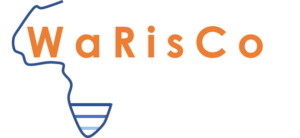
Southern Africa is a water stress hot spot, which under climate change is projected to become drastically warmer, and likely also drier, but with more extreme rainfall events in the east. WaRisCo will explore two of the biggest disaster risks South Africa may face in a warmer world:
1) the risk of an unprecedented long-duration ‘day-zero drought’ in its Gauteng Province, an event with potentially disastrous socio-economic and environmental impacts, and
2) the risk of mega-flooding in the rivers of the larger Durban region – such floods may be catastrophic in terms of the number of human lives lost.
A comprehensive hydrological modelling system integrating state-of-the art regional climate models and explorative scenarios of land-use, land-management and land-cover change (LUMCC) will be developed. The project aims at obtaining probabilistic projections of how climate change and LUMCC may alter water security in the Integrated Vaal River System and the KwaZulu-Natal River Systems for the very first time. Working with key stakeholders, including the national Department of Water and Sanitation, and the National Disaster Management Centre, WaRisCo will support Disaster Risk Reduction (DRR) and climate change adaptation strategies in both the Gauteng Province and the Durban region. Specifically, WaRisCo will generate research outputs directly relevant to climate-smart DRR and long-term adaptation, and will strive for the uptake of these hydro-climate services in DRR and long-term adaptation, through a co-design process with key stakeholders who have the authority and mandate to implement the project’s recommendations. Our research methodology and implementation strategy will be designed to be transferable to other catchments in southern Africa and beyond.
Funding period: 01.05.2024 – 30.04.2028
Funding body: BMBF and WRC
Project Consortium:
- Friedrich Schiller University Jena (FSU), Department of Gepgraphy, Geographic Information Science
- University of the Witwatersrand, Global Change Institute (Wits-GCI)
- Helmholtz-Zentrum Hereon, Climate Service Center Germany (Hereon-GERICS)
- SYDRO Consult GmbH (SYDRO)
- Motlole and Associates (MA)
- Agricultural Research Council (ARC)
DiP: SMART Agroforst
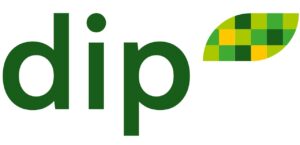
Das Projekt “DiP-SMART-Agroforst” verfolgt das Ziel, mittels digitaler Instrumente den Mehrwert agroforstlicher Systeme (AFS) auf betrieblicher und landschaftlicher Ebene in Süd-Sachsen-Anhalt zur Wirkung zu bringen. Eine Stärkung agroforstlicher Systeme und deren Wertschöpfungsketten in der Region fördert eine nachhaltige sowie klimaresiliente Landbewirtschaftung und bildet eine wirtschaftlich bedeutsame Basis für die Produktion biobasierter Rohstoffe, etwa für die chemische Industrie in Mitteldeutschland.
Mit innovativer Forschung zur Digitalisierung und Bioökonomie mit einem Schwerpunkt auf Lignozelluloseströmen möchte das vorgeschlagene Projekt wesentliche Problemfelder für den notwendigen Strukturwandel adressieren.
Ziele
- Entwicklung eines digitalen Gehölz- und Flächenkatasters durch innovative Geofernerkundungsmethoden zur Abschätzung von Aufkommenspotentialen und ökologischen Vorteilswirkungen.
- Entwicklung einer Produkt- und Prozessdatenbank für Verwertungspfade lignozellulose-haltiger Rohstoffe.
- Entwicklung von Entscheidungsunterstützungswerkzeugen für verschiedene Akteure in AFS-basierten Wertschöpfungsnetzwerken (z.B. standortbezogene Gehölzwahl, Kapazitätsplanung).
- Aufbau einer Informationsplattform “SMART Agroforst” als zentrales Koordinationsinstrument für alle Akteure AFS-basierter Wertschöpfungsnetzwerke
- Nutzung digitaler Werkzeuge und Vernetzung der Akteure entlang der Wertschöpfungskette zur ntwicklung und Stärkung kooperativer Bewirtschaftungskonzepte.
Förderdauer: 01.04.2024 – 31.12.2028
Fördermittelgeber: BMBF
BETTER Life
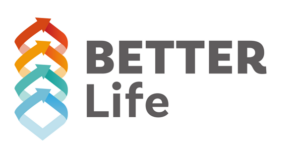
BETTER Life Project
Project description:
Recent scientific studies show that there is dire need for enhanced communication and collaboration among all Quadruple Helix actors. Likewise, there is a growing interest in collaborative and interdisciplinary research for addressing many global challenges that societies all across the globe are facing. We believe that Early Career Researchers can and should play a key role in addressing these challenges and breaking the traditional barriers of academic research by aligning their research more with societal needs and wants.
As such, our consortium is committed to addressing these challenges in life sciences, which is the key field of strength across the institutions, by engaging relevant partners in each of the project’s partner regions and with them, create the necessary support structures to build individual, intra-institutional, and inter-institutional capacities, engaging with the surrounding ecosystem, and constructing in international framing guidelines. The mission of the BETTER Life project is to establish EU Digital Centres of Excellence for Socially Engaged Research in Life Sciences in each of the partner countries. The Centres will provide an inter-institutional support structure for developing capacities of early career researchers (PhD students and researchers not yet fully independent) aiming to foster socially engaged research to tackle societal challenges in their surrounding ecosystems while consolidating the EU BETTER Life Centre as a world reference in planning, supporting, and implementing SER in life sciences.
[DE] In den letzten Jahren zeigte sich, dass ein großer Bedarf an verbesserter Kommunikation und Kollaboration zwischen Forschung, Politik, Wirtschaft und Sozialen Akteuren besteht. Darüber hinaus wurde deutlich, dass das Interesse an interdisziplinärer Forschung die sich mit der Bewältigung verschiedener globaler, sozialer Herausforderungen beschäftigt, stetig wächst. An dieser Schnittstelle versuchen wir über das BETTER Life Projekt anzusetzen und fokussieren uns vor allem auf sogenannte „Early Career Researchers (ECR)“ – d.h. PhD Studierende & Absolventen, sowie junge Wissenschaftler die am Anfang ihrer Karriere stehen. Wir glauben, dass besonders junge Wissenschaftler ein großes Potential mit sich bringen, die traditionellen Barrieren der akademischen Forschung zu brechen und ihre Forschung enger an den Bedürfnissen der Gesellschaft zu orientieren.
Das BETTER Life Projekt zielt darauf ab, über enge Zusammenarbeit mit relevanten Zivil-, Wirtschafts- und Politikakteuren die notwendigen Strukturen zu generieren und Prozesse anzustoßen, über welche individuelle, inter-institutionelle und regionale Kapazitäten aufgebaut werden um verschiedenste regionale und über-regionale gesellschaftliche Herausforderungen kooperativ zu bewältigen. Dazu werden wir auch verschiedenste Guidelines und Informationsdokumente generieren, um alle Akteure mit dem notwendigen Wissen auszustatten. Im Zuge dessen werden in den Partnerregionen des Projektes Digitale Zentren für Exzellenz etabliert. Diese Zentren dienen als Anlaufstelle für junge Wissenschaftler, um sie bei der Gestaltung einer sozial-engagierter Forschung zu unterstützen.
Project duration: 09/2022-09/2025
Project partners:

- Czech University of Life Sciences (CZU), Tschechische Republik – Projekt-Koordinator, https://www.czu.cz/en
- Martin-Luther University of Halle-Wittenberg (MLU), Deutschland, https://www.uni-halle.de/?lang=en
- University of Camerino (UNICAM), Italien, https://www.unicam.it/en/home
- Accreditation Council for Entrepreneurial and Engaged Universities (ACEEU), Deutschland, https://www.aceeu.org/
- Estonian University of Life Sciences (EMU), Estland, https://www.emu.ee/en/
- Daugavpils University (DU), Lettland, https://du.lv/en/home/
- Poznan University of Life Sciences (PULS), Polen, https://skylark.up.poznan.pl/en/
- HELIXCONNECT, Rumänien, https://helix-connect.com/
- Educons University (EDUCONS), Serbien, https://educons.edu.rs/
Funding body: EU Horizon-CSA
Webpages:
https://betterlifehorizon.eu/
https://www.better-life-digital.eu/
YHeld
Yemeniti Higher Education Leading to Development of relint offices
Project description:
The goal of the Yemeni Higher Education Leading to Development of relint offices project (YHELD) is to contribute to reduce the internationalization isolation of Yemeni HEIs, promoting their role in the educational, cultural and economic actions for the reconstruction of the country. The project responds to an urgent and concrete request formulated by Yemeni Universities to support them in overcoming some of the difficulties and the isolation problems created by the recent and current history of the PC. The higher education is one of the sectors that sustained serious destruction and is not considered as priority due to the humaniatarian emergency. In addition, the security issue as well as the lack of qualified employment opportunities have discouraged students to participate in the academic life. HEIs have a key role to play in social stability, international cooperation and peace-building actions, as well as in advocacy on these key themes with national and international stakeholders which are probably the only realistic and feasible actors able to support local educational Institutions and to improve government and International awareness on local educational needs. The specific objective of the project is to enhance Yemeni HEIs capacities and abilities to work at international level, through the establishment of IROs – International Relation Offices and the definition of internationalization strategies in the partner Yemeni universities. IROs will be academic window on international scenario, a strategic “tool” to involve local educational community in international innovative initiatives, giving visibility, supporting and monitoring the Universities’ initiatives also assuring good quality standards. In order to achieve our objectives we will use a multidisciplinary methodology that will allows us to approach the challenge from different perspectives: – Develop new innovative and multidisciplinary abilities to improve HEIs abilities and capabilities.
Project duration: started, 2 years
Project lead:
Link Campus University, Rome
Funding body:
EU, Wider-A
RiHEI
Responsible and Impactful Universities as Sustainable Growth and Enterprise Catalysts in Georgia
Project description:
The general aim of RiHEI is to transform the Georgian HEI ecosystem into an engine of sustainable and responsible (socially, environmentally) growth for enterprise and job creation by investing in the capabilities of youth and better connecting education, research and innovation with private sector needs. This will be achieved by placing HEIs as “engaged” transformational actors of the country’s economic ecosystem (via quadruple helix-led responsible innovation coproduction and public-private impact investment), facilitating youth entrepreneurship, boosting STEAM skills and triggering ecosystem development (clusters synergies) that fully integrate vulnerable communities as well as remote & rural areas. This will be achieved via the following general objectives (GOs): GO1: Modernise, internationalise and increase access to Georgian higher education for next generation labour market actors with emphasis on equal opportunities, gender sensitivity and the inclusion of marginalised (including better services to students from remote/rural areas). GO2: Address the challenges faced by Georgian HEIs towards becoming a transformational engine of sustainable and responsible (environmentally, socially) engine of growth, jobs and enterprise creation by radically transforming how innovation production is being performed within universities and by training HEIs to become quadruple helix ecosystem mobilisers, while bringing youth closer to STEAM. GO3: Increase cooperation with the EU by developing a network of HEI capacity building provision, staff exchange and multi-ecosystem co-creation and by motivating Georgian HEIs to voluntarily converge with EU standards in higher education while promoting cross-societal exchange and collaboration, intercultural awareness, and understanding.
Project duration: started, 3 years
Project lead:
University of Lodz, Poland
Funding body:
EU, Wider-A
DSS4ES
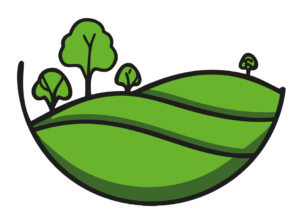
Integrated Decision Support Systems (DSS) for delivery of ecosystem services (ES) based on EU forest policies
Project description:
Forests are significant part of surrounding landscape and every management decision in forest affects the landscape as well, and vice versa, management decision in surrounding landscape affects the forests. There is thus a need for an integrated DSS framework that addresses all objectives of sustainable forest management in the landscape appropriately by linking all mutual relations between forests and surrounding landscape. Such integrated DSS framework will require the consideration of information and approaches from different rural and land using activities and sectors. In this context, juxtaposition and integration of the knowledge from DSS (developed for farming, animal husbandry, forestry, ecosystem management, etc.) will be an excellent starting point for advancing toward an integrated system for sustainable assessing the provision of ecosystem service (ES) at landscape scale, including provision of resources for bio-based economic activities, protection and regulation, or cultural services. The main aim of this Action is to establish a research network for facilitating the conceptualisation and development of new methodological approaches in decision support systems including important relations between forest and landscape. The emphasis is on screening, evaluating and proposing existing and future tools to support holistic planning approaches to increase sustainable forest management, considering various ecosystem services and products addressing the associated risks and uncertainties.
Project duration: 29/09/2023 – 28/09/2027
Project partner:
- Czech University of Life Sciences, Prague (Coordination)
- Martin Luther University Halle-Wittenberg (MLU), Germany
- University of Natural Resources and Life Sciences (BOKU), Institute of Silviculture, Austria, Vienna
- ETH Zürich, Switzerland
- Warsaw University of Life Sciences, Institute of Forest Sciences, Poland
- University of Novi Sad, Faculty of Agriculture, Serbia
- And cooperation between many different European Universities
Funding body:
EU, European Cooperation in Science and Technology – COST
Contact person: Dr. Janina Kleemann (janina.kleemann@geo.uni-halle.de)
Webpage: https://www.dss4es.com/en/, https://www.cost.eu/actions/CA22141/
MDI4B
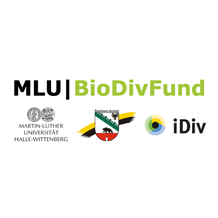
Multidimensionaler Index zur Unterstützung der Umsetzung und Bewertung der EU-Biodiversitätsstrategie und ergänzender Maßnahmen in Sachsen-Anhalt
Projektlaufzeit: 01. Januar 2024 – 15. März 2025 (14 Monate)
Projektbeschreibung:
Dieses Projekt wird die Lücke bei den Indikatoren für die Überwachung der Umsetzung und die Bewertung der Auswirkungen der EU-Biodiversitätsstrategie in Sachsen-Anhalt schließen, indem gemeinsam mit Experten und Praktikern ein mehrdimensionaler Index entwickelt wird, der die neuesten wissenschaftlichen Erkenntnisse und politischen Rahmenbedingungen integriert. Wir gehen davon aus, dass eine kohärentere Politik und kohärentere Instrumente zum Schutz der biologischen Vielfalt zu einer erfolgreichen Umsetzung des Europäischen Green Deals und der globalen Biodiversitätsagenda nach 2020 beitragen würden. Ziel ist es, einen mehrdimensionalen Index zu entwickeln, der bessere Entscheidungsgrundlagen für die Gestaltung der Biodiversitätspolitik und der begleitenden Vorschriften liefert und die Kohärenz zwischen den sich ergänzenden sektoralen Politiken (z. B. Landwirtschaft, Energiewende) verbessert.
Unsere Forschungsfragen sind:
- Indikatoren: Was sollte für die biologische Vielfalt und ergänzende sektorale Maßnahmen gemessen und überwacht werden, um ihre Wirkung zu gewährleisten?
- Wege: Wie können Politiken und politische Instrumente anhand von Indikatoren bestimmt werden, die mehrere Werte und Vorteile der biologischen Vielfalt repräsentieren?
- Grenzen: Ist ein mehrdimensionaler Index nützlich, um eine sektorübergreifende Politikkohärenz zu erreichen, indem Synergien und Zielkonflikte erklärt und quantifiziert werden?
Es ist vorgesehen, dass dieses Projekt dringend benötigte Einblicke in die subnationale Umsetzung von multidimensionalen Erhaltungs- und Nachhaltigkeitspolitiken und wissenschaftlichen Rahmenwerken im Post-2020- und Post-COVID19-Kontext liefert.
Finanzierung: Bundesland Sachsen-Anhalt – MLU-Förderfonds für integrative Biodiversitätsforschung in Sachsen-Anhalt (MLU BioDivFund)
Teilnehmer: Dr. Nica Claudia Caló (Wissenschaftliche Koordinatorin), Christine Fürst, Henrique Pereira, Insa Theesfeld, Marten Winter (PIs)

- iDiv
- Martin-Luther-Universität Halle-Wittenberg
- Bundesland Sachsen-Anhalt
BioGoValues

BIOdiversity GOvernance and VALUES in Saxony-Anhalt
Projektlaufzeit: 01.01.2022-15.09.2024
Projektbeschreibung folgt noch
Finanzierung: Bundesland Sachsen-Anhalt – MLU-Förderfonds für integrative Biodiversitätsforschung in Sachsen-Anhalt (MLU BioDivFund)
Partner:
iDiv Cluster “Biodiversity and Society” und Regional Research Cluster “Society and Culture in Motion” at MLU
Teilnehmer:
Dr. Stefan Knauß (PI), Prof. Dr. Christian Papilloud (CO-PI), Prof. Dr. Christine Fürst, Prof. Dr. Henrique Pereira.
